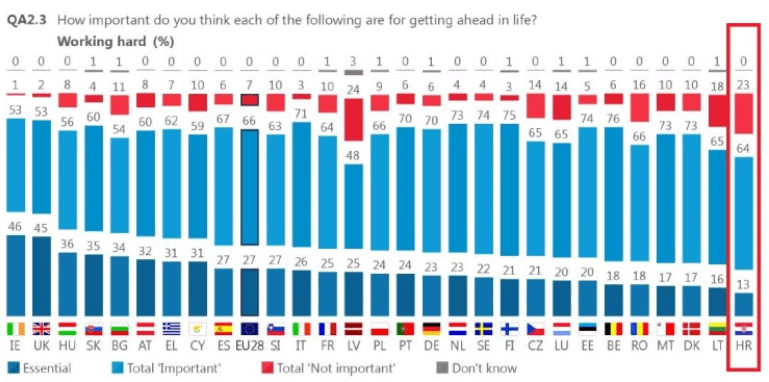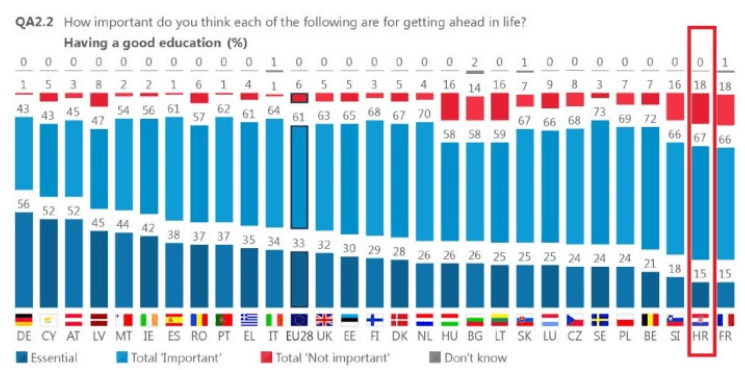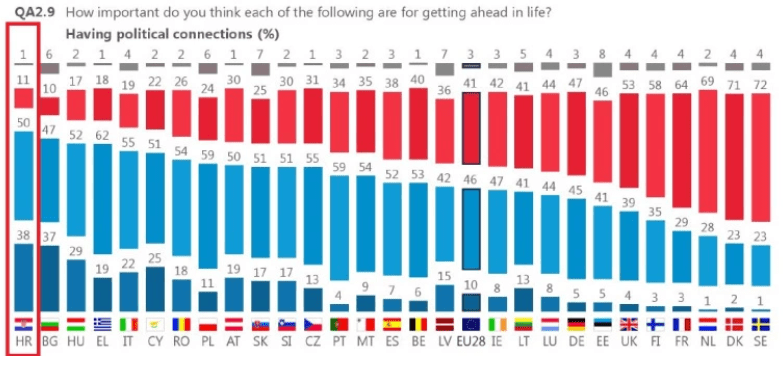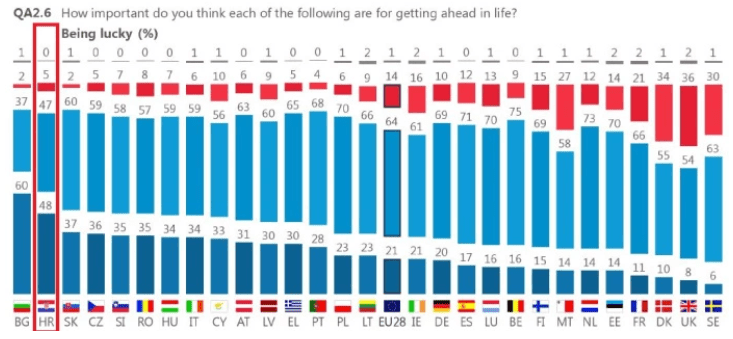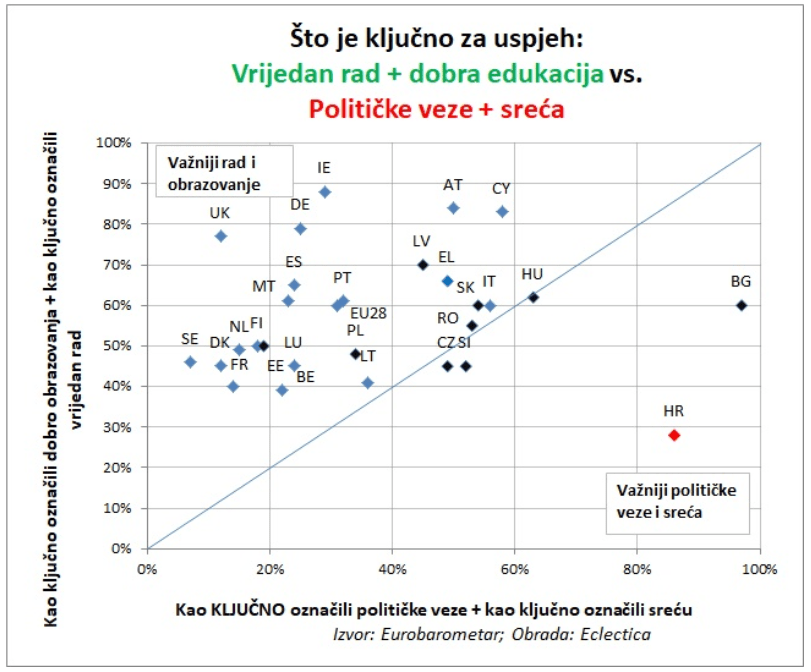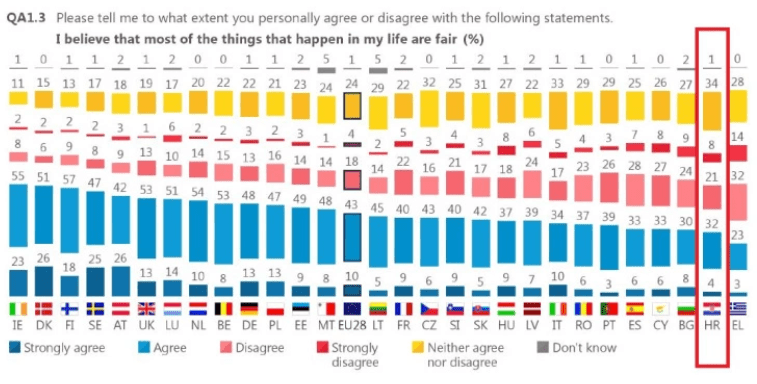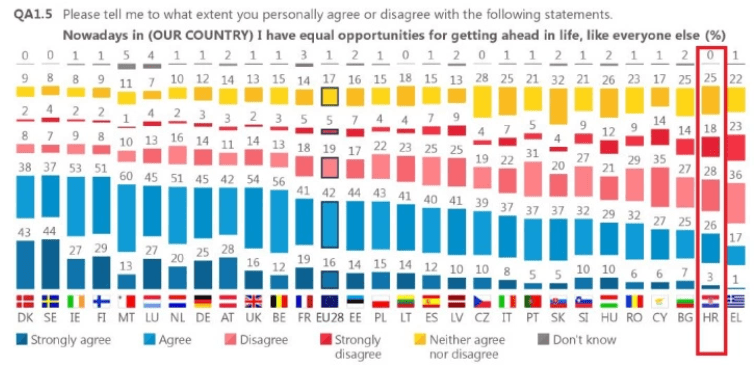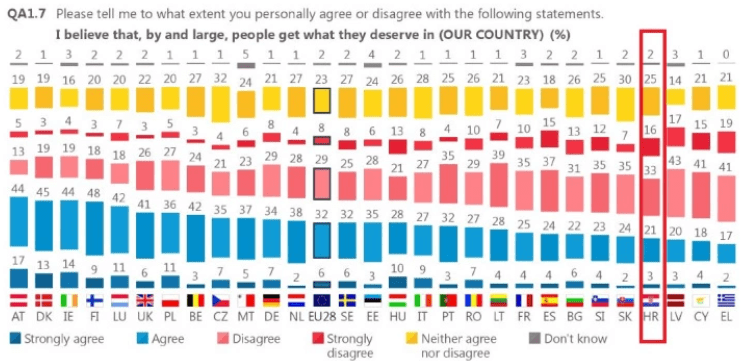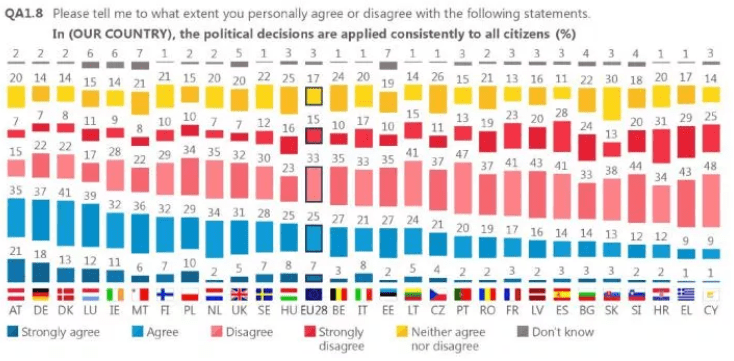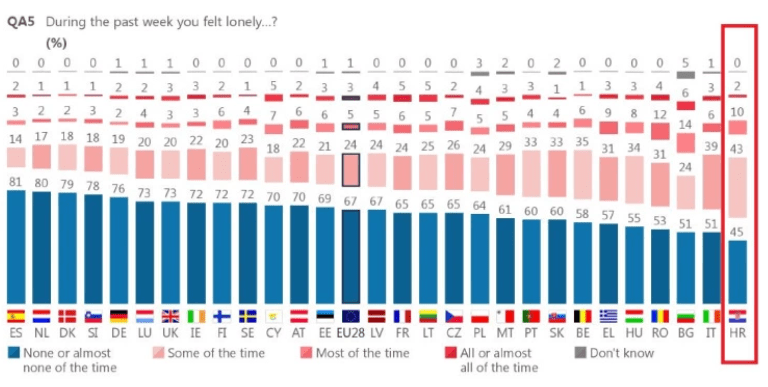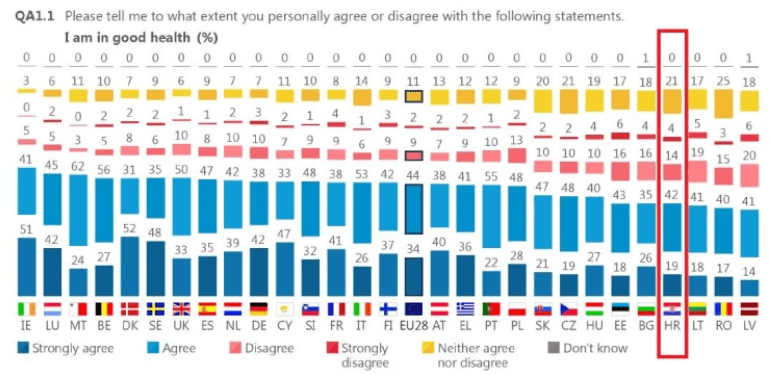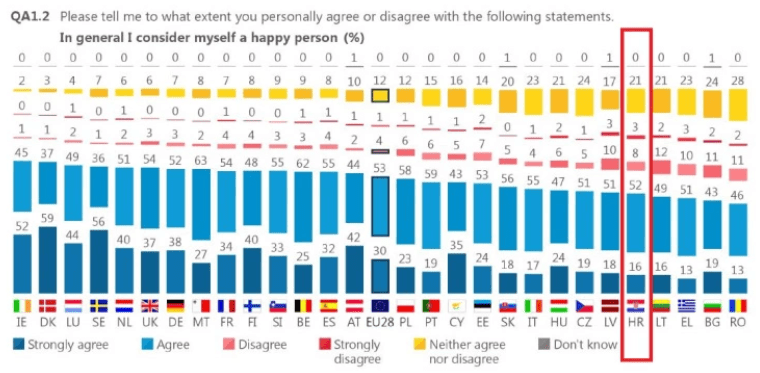Croatian Conversation: 5 Years Ago There Were Almost no Women, Today it’s 50/50
23 March 2022 - Although progress has been made over the past 10 years on gender equality within Croatia and the EU, admittedly the road ahead is still a long one. In this episode of Croatian Conversation, I chat with two women in the Croatian STEM industry to get a grounded perspective on some of these issues, and improvements made over the years.
I’d like Total Croatia News readers to warmly welcome two highly accomplished women, Ivona and Nikolina, in this new episode of Croatian Conversation. Ivona is a final year computer science student at the University of Split, while Nikolina is a full-stack developer working for an international telecommunications software firm.
We’ll be hearing their perspectives on working in the STEM industry, the changing attitudes towards women in STEM, and of leaving Croatia to seek greener pastures.
Read on as we chat about positive change, career options in Dalmatia, cheap cafeteria lunches, family influences, and more.

Gender equality in STEM industries is improving. (Image: Pexels)
Thank you both for doing this! How did you come to learn about software engineering and why choose a career, or study in this field?
N: Basically, from primary school, I was good at math and physics, and it was like “Okay. I don't want to be a teacher”, and I always had problems with Croatian and with English, so I started looking more at this (technology) industry.
Also, I was deciding between medicine and engineering. When I was little, I said that I will be a kinesiologist, with diet, nutrition, and working out, but unfortunately, I didn’t have the marks (grades) for medicine.
And what about you Ivona, kind of the same outlook?
I: Actually, I was quite the opposite. I was more about languages. Yeah, but there was also a kind of, well, let’s call it a problem. I was raised in a family where everyone went to school related to some kind of IT (information technology).
My father always said that my mother is the reason why I didn't do the same and did languages instead. She said going to high school for computer science or electronics, there were a lot of men, and she didn't allow that. She told me that I would be the only girl in that school, and that might be a problem.
So, I didn't know what the next step would be for me. Even in primary school, between languages and math, I was actually good at both so, I decided to go to gymnasium for French and English.
N: I learned Italian but forgot everything. Maybe now I can still understand something. But yeah, it was bad.
Right, so you (N) liked math and physics? Yeah. And you (I) were more into languages?
I: Yeah. I wasn't sure what I wanted to do with my life (career wise). So, I just decided, “Oh, I’m good at languages”. I even studied Italian; it was cool, but when I went to gymnasium (high school), I figured out that it (languages) was not for me.
Why do you say that?
I: I don't know, I figured out that I didn’t want to teach because I’m not someone who can work with a lot of kids. And I had some problems with English during gymnasium because my teacher was quite strict. Then I thought that's (languages) definitely not for me, and the next question was, what's next? So, I decided to try this (computer science).
It's interesting that both of you say that you didn't want to be teachers. Was that a traditional career path to follow?
N: Yes, sort of, but now I sometimes I think I could (be a teacher)? But then, it was a little bit worrying when you teach the same thing every year. I think you should always get some different tasks, always create something new. In teaching, I think that is difficult.
So, you like new challenges and not doing the same repetitive tasks all the time?
N: Yeah, definitely.
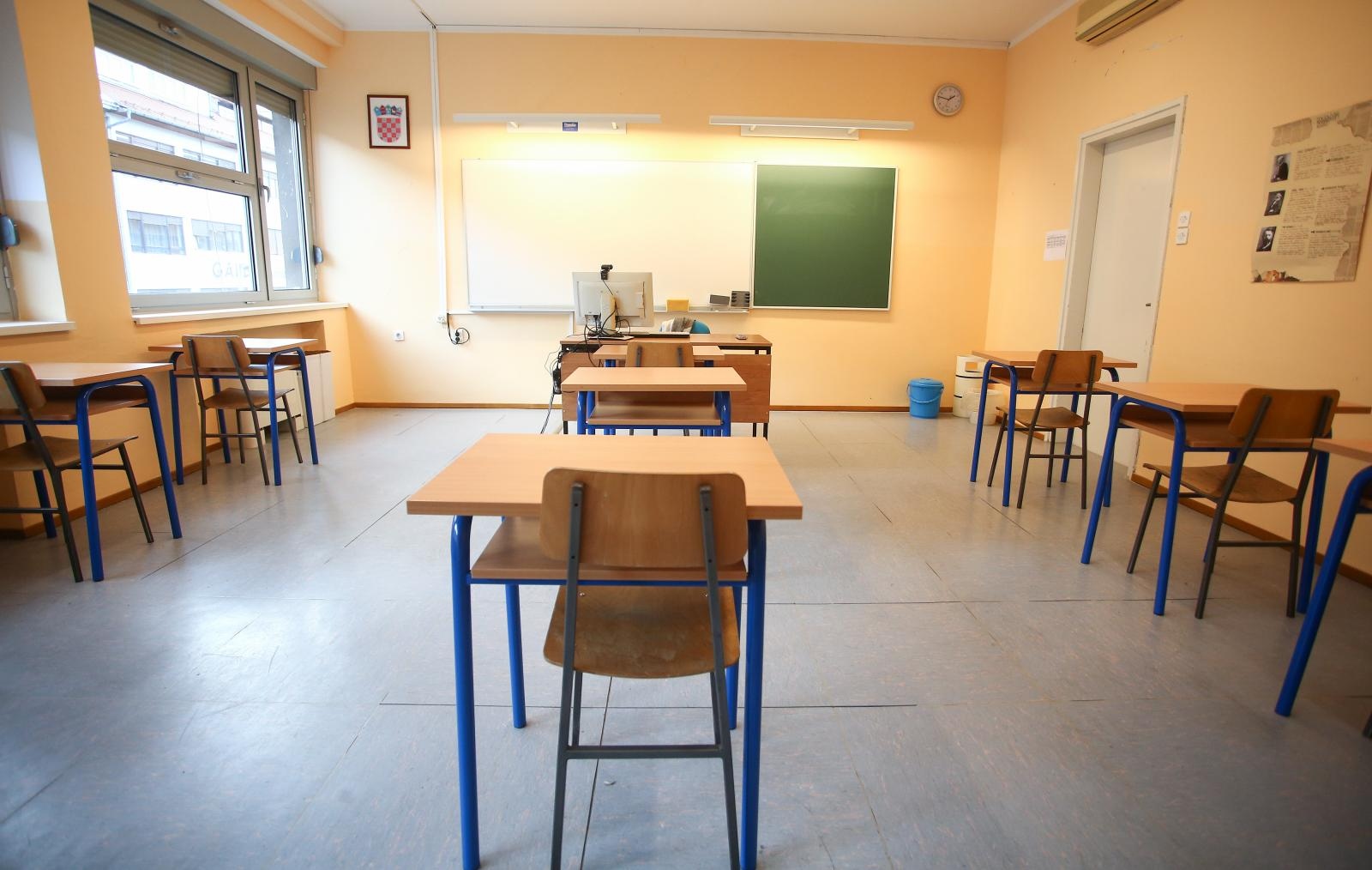
Teaching is considered a traditional career path for women in STEM. (Photo: Matija Habljak/PIXSELL)
Okay. And for you (I)?
I: From my side, it’s really hard to teach kids. It's a huge responsibility and I kind of know that in Split, it's really hard to get a job (teaching). So, that was also one big part in deciding why I have to go to college for five years (in IT), to find a job (in Split).
Right. And what about you N? Were you more certain that you would get a job within the engineering and tech industry?
N: Yeah, I think you have more options than a teacher.
Okay. And was your family supportive?
N: Yeah, they were super supportive because they did not go to college, just high school, and they pushed me to learn, to have a better life.
I: But it's very interesting that now, my mother is now the biggest motivator. She always says “you can do it now that it's different”.
That’s great!
I: Because she figured out that it’s not only a job for a man, so now she's supportive. Before, I was also thinking of whether this (industry) was for me? I don't know why I thought this way, maybe it's old school? But I think (the attitude) is changing.
Right, different times
I: Women didn't even have the same opportunities to go to school.
The conversation is interrupted by another intern from the marketing department, as we take a detour into the lives of university students in Split.
I: Would you like something from college? We have meals but only for students, there’s like a card and at the restaurant (University cafeteria), it's 50% cheaper.
Interesting, what’s this about, like how much do you pay for lunch?
I: Something like 8 kunas? (Approximately €1.06)
What do you get for 8 kunas?
N: Sometimes bad stuff.
I: Meat, salad, but it's like a meal. That means so you can choose every day you have, maybe five different dishes. And then students who live in another city or have more money. I'm from Kaštela, and I think I get around 160 kunas every month. I think this (initiative) is for all students in Croatia.
Oh cool, but let’s get back on track. So (N) you were saying you are actually an electrical engineering graduate, why did you go into programming?
N: From electrical engineering, I went to telecommunications and informatics (2-year master’s program) and applied for this job to learn more about programming because I liked the logic (behind programming) better.
I: Yeah, I also started electrical (engineering) for two years but didn’t feel like I’d learned anything. Now (with programming) I feel like I’m learning how to do something.
What about for you (I), why did you change industries?
I: Well actually, it’s not only about the job, I think to be hired, it’s also based on your projects or skills. Through studying computer science, I realized I could do something practical so that’s why I’m here (as an intern), because you can learn so much (from the internship).
I see, so computer science is more logical and hands-on.
I: The first and second year of programming was so hard for me. But basic software engineering was easier than pure theory, you get to do something. They give you the opportunity to learn and you also have a chance to ask, if you're just waiting for someone to notice you *shakes head* you can’t.
N: Yeah, you do ask a lot (of questions)
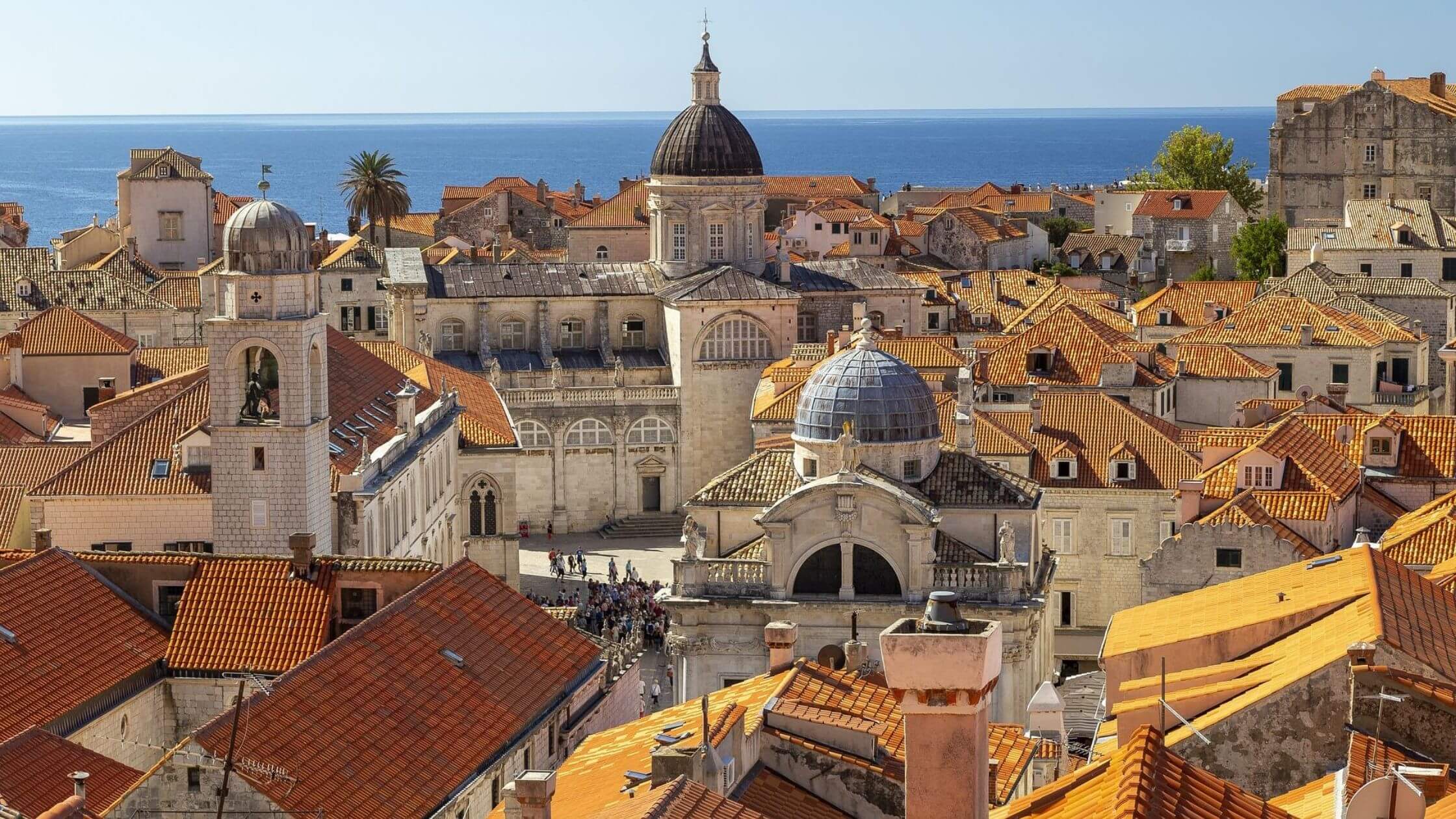
Both talk about how they enjoy the logic and rationale behind coding and programming. (Image: Pexels)
There are also a lot of people who have an engineering degree, but then they end up working outside the industry, why do you think that's the case?
I: Well, to be honest, some people just want a degree. It's not important for them what the degree is, they just want it for now and maybe one day in the future decide if they will work in the field. A lot of my friends (who graduated) were asking if this was the right decision. But their problem is they don't want to try (to get a job in the industry).
And if you try for one year or two years, however long, you have time to figure out if this is for you or not. I think that there are a lot of companies that are giving students these opportunities, but (students) are not taking them. I don’t know why.
Right. And what about you N, when you graduated? Do you find all your friends working in the field?
N: I think some are in teaching and some are still without jobs because they don't have the right skills. So, I think they are trying to create some projects to put on their CV. Basically before (this job), I applied to different companies and I was worried about my 5 years spent (in college) and if I even knew anything, so this was what scared me (regarding jobs and the industry).
I see, also do you see yourself staying in this field?
N: Sometimes I feel that this is for me, sometimes I feel it isn't. But more so I see myself staying. I think it will get better with more interesting work, but I feel I'm better here (in the software industry) generally.
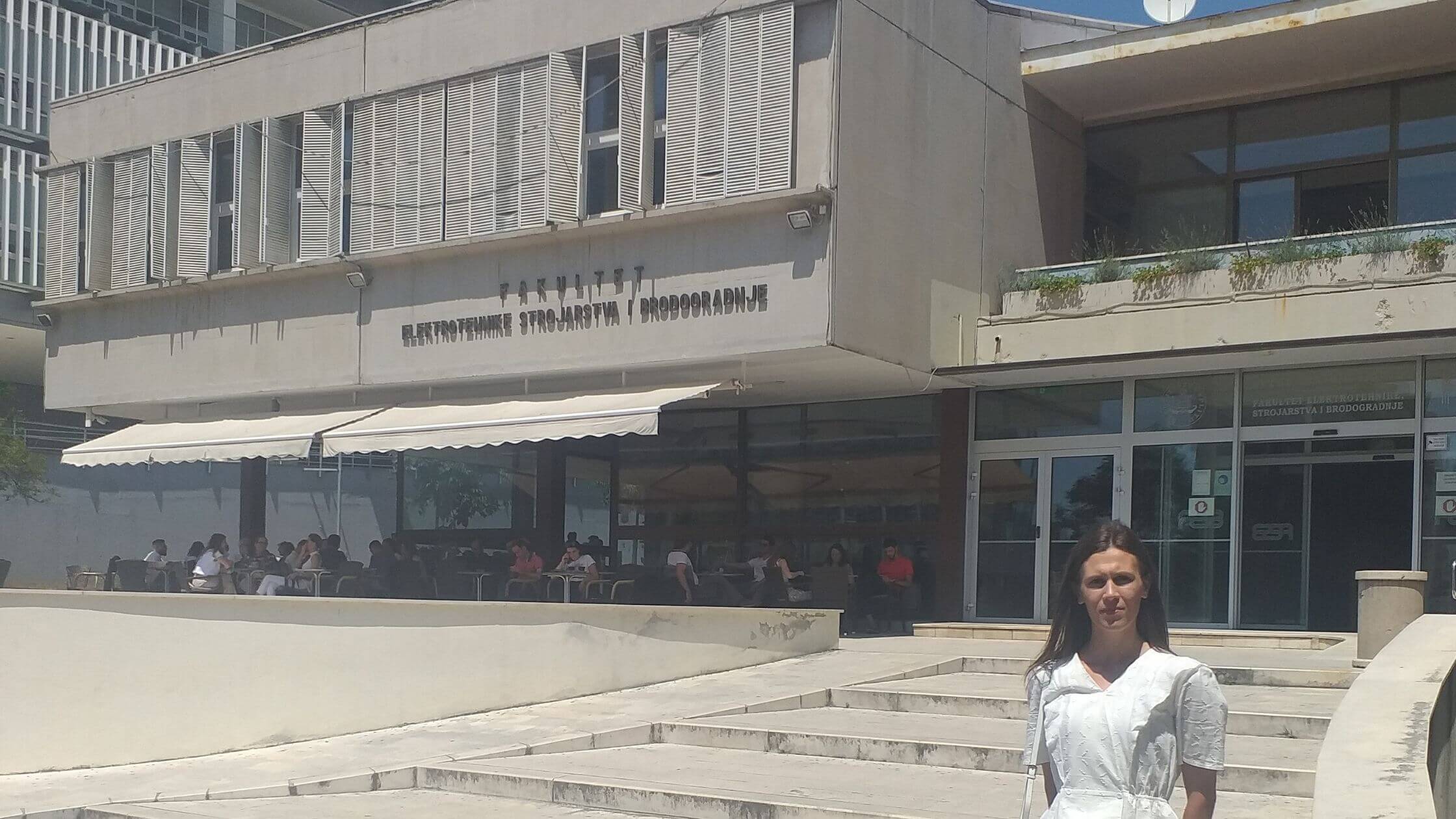
Nikolina standing outside the faculty building after successfully defending her Master's thesis. (Image: Nikolina Zelic/Personal album)
Yeah. And for you (I), do you feel as a woman in engineering any different?
I: No, I think everything is the same.
Great, so you see yourself exploring this more?
I: Yes, for now. I am really happy here. I don't know, maybe I’m different. Because at first it was difficult but my colleague, he also helps a lot. A lot! When I have some problem with anything, I can ask him.
He also really encouraged me to try after doing the hackathon here (in December 2021). If I didn't hear from someone who is working in this field for a few years, I don't know, would probably say, I'm not sure (about staying in the field). But he really encouraged me to try and said that I will learn something.
Right, that’s really cool that you have supportive colleagues. I have another question about school, did you have a lot of female engineers in your courses?
I: Yeah, but when I was in the first year, they told us that five years ago, there were almost no women in the faculty.
What do you think is the split now?
Both: 50-50? Yeah, 50-50.
Wow, ok.
I: Well, I think it's more women than men, actually. Now at least, but we can say 50-50.
N: Yeah. Maybe for telecommunications, I think there are more women.
Great, before we close, I have a final question, with the latest census results, have either of you thought of leaving Croatia? For better jobs or salaries?
N: Well, I love Canada so much.
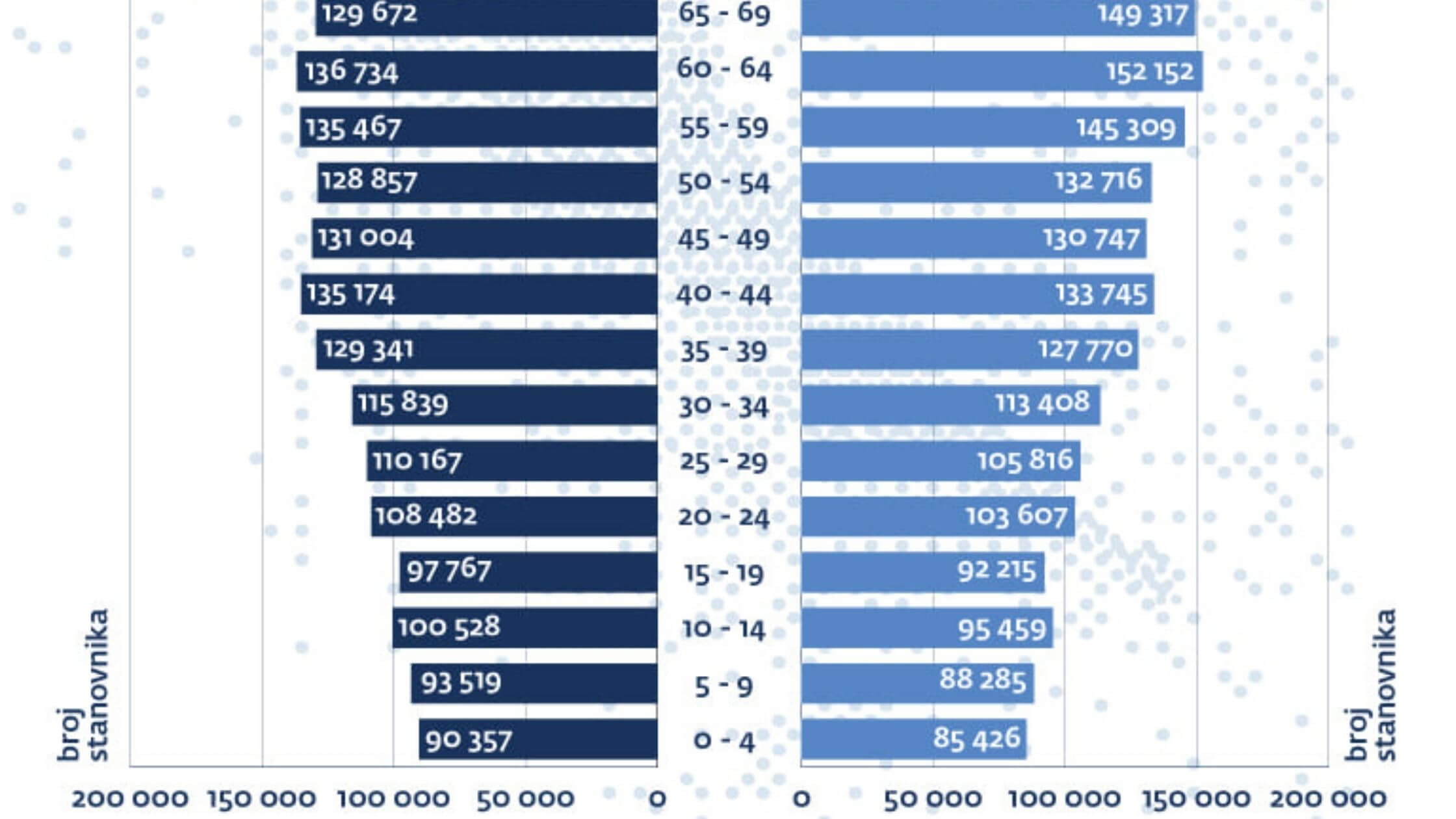
Croatia has seen a population decline of almost 10% over the last decade, with the younger generation leaving to seek better opportunities overseas. (Image: DZS/Facebook screenshot)
Have you been before?
N: No, no, no. But I just love that country. I don't know why.
Okay. Maybe something you in the media.
N: Yes, it seems much better and nicer, but it depends on the province? I just want to try, to see how it's like working in another country, in any country. It can be in Germany, if not somewhere.
For you, Ivana, you seemed more hesitant to the idea?
I: Yeah, working and living here. Definitely, I can say I would like to (continue). My friends and family are here and when I step out of the house, there’s the sea right at my door. Well, I live in Kaštela, it’s a little bit different than Split right, it's more casual but yeah, I really like it.
Cool, well thank you ladies for this chat, I feel I know more about the STEM industry and the Croatian education system in general!
For more, check our lifestyle section.
Scope Project: Višnjan Observatory on STEM Popularization Mission
September 9, 2021 - The Višnjan Observatory and other relevant institutions are enrolled in the Scope Project. Under the motto "Science connects people", the goal is to popularise and improve the STEM area in Croatia.
When it comes to astronomy in Croatia, the Višnjan Observatory in Istria holds the top place as the best location to gaze up at the stars, and both the Croatian and international public seems to recognise that.
The work undertaken there speaks for itself, especially when it comes to events like discovering new asteroids, and people's willingness to support the cause is evident in a successful crowdfunding campaign earlier this year.
Since the end of October 2020, the observatory has been enrolled in the Scope Project, which under the motto of ''Science connects people'', aims to promote the STEM area.
''The goal of the project is to create a network of cooperation for all relevant actors in the goal of making encouraging the creation of an environment for the development and progress of the STEM area in the sense of strengthening capacities and cooperation of the civil society organisations, as well as common cooperation in shaping STEM area public policies,'' says the Višnjan Observatory's website.
Others the Višnjan Observatory cooperates in this project with include the Ruđer Bošković Institute (IRB), several faculties from Zagreb University (Faculty of Mechanical Engineering and Naval Architecture, Faculty of Architecture), the Carpe Diem Association for the creative and social development of kids and adults, the Croatian Interdisciplinary Society and many more. The project will last until October 28, 2023, on a budget of 3,599,107 kuna.
''The latest data clearly showcases the lack of students and experts in the STEM area. The need for activities in the STEM area is recognised in the National Strategy of education, science, and technology,'' says the Višnjan Observatory website, highlighting the need for this project.
With the already mentioned networking and collaboration in making policies, the plan of the Scope Project is to also survey public opinion, which will provide data for the higher scientific institutions to conduct research and to guide propositions for public policies.
Despite Croatia lacking experts and general interest in the STEM area, it is comforting to know that those interested in the area are indeed quite successful. Croatian scientists represented Croatia during the G20 summit as they participated in the first quantum communication, students achieved fantastic results during the informatics competition, and IRB scientists frequently make international scientific news with the dedicated work of their scientists (just to mention few examples).
Learn more about Croatian inventions and discoveries from Tesla to Rimac on our dedicated TC page.
For more about science in Croatia, follow TCN's dedicated page.
Best Faculty at Zagreb University: Faculty of Agriculture Scores Highest in NTU Ranking
May 11, 2021 -The oldest university in Croatia is the one in Zagreb, and the best faculty at Zagreb University is the Faculty of Agriculture, according to the NTU global ranking of 800 universities worldwide.
The quality of Zagreb University, according to the global NTU ranking conducted by the National Taiwan University, is in decline. On the list of 800 Universities worldwide, Zagreb University was ranked 478th best in the world, and in recent years it was levitating between 551st and 600th place. But, as Srednja.hr reports, the overall decline of quality has an exception on that list, and it's thanks to the Faculty of Agriculture.
The Faculty is ranked to be the best at Zagreb University, and the area of agriculture on the global list is ranked between 301st and 350th place. That is the ranking of the area, but also under the criteria of research interest, the ranking is even better, 87th place, thus making it the only thing at Zagreb University to be in the top 100 on the list.
„Even though it's the oldest human occupation, agriculture today is light years away from what our grandparents know. Agriculture is part of the STEM area (‘science, technology, engineering & mathematics), and it's actually highly technological. There are several reasons why this sector so is fastly modernized. For starters, the production of food and raw ingredients to produce food is the most important human activity that will always have demand. To keep up the step with the increasing number of population, less and less arable surfaced and the increasing living standards, agriculture had to modernize significantly, and introduce newest technologies“, writes Srednja.hr.
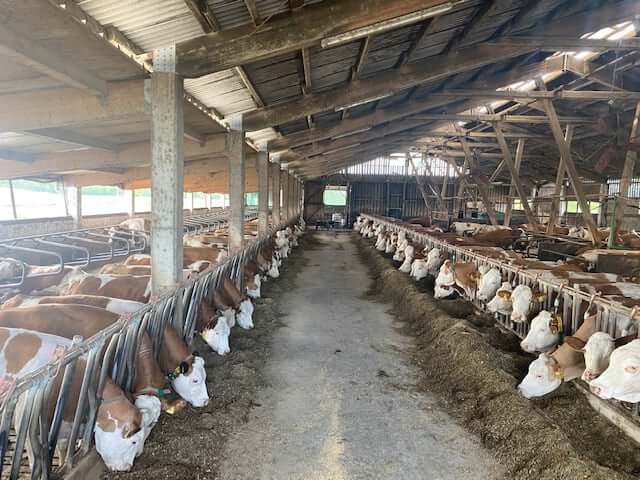 © Sveučilište u Zagrebu Agronomski fakultet
© Sveučilište u Zagrebu Agronomski fakultet
The Agriculture Faculty in Zagreb was founded in 1919. As the Faculty's official website reports, they have over 450 employees today who are highly motivated to pass their knowledge to around 2,500 students, which they consider their greatest value that they add to society.
„By connecting with foreign universities, both from Europe and worldwide, we have international cooperation in both teaching and scientific research area, and student mobility. Successful participation in bilateral and multilateral research programs, exchanges of students, young scientists, and university lecturers, as well as securing scholarships contribute to the visibility and recognition of the Faculty on all levels“, says the Agriculture Faculty.
The Faculty's personnel annually publishes 280 scientific papers, and in the last decade, 160 active research projects are ongoing with 75% of investments coming from domestic sources and the rest from international ones. Scholarships supports, and rewards for the best students are secured through the trust fund the Faculty has.
„It's less known that the Agriculture Faculty is declared a Scientific Centre of Excellence CroP-BioDiv (for biodiversity and molecular plant breeding). It is one of the 10 scientific centers in the STEM area declared in the Republic of Croatia. CroP-BioDiv is a research network of top scientists from all over Croatia directed to the transmission of highly sophisticated knowledge and technologies“, writes Faculty's website concluding their institution is directed towards future with sustainability, quality, research encouragement, scientific excellence, and cooperation with the Croatian economy, as key strategic goals.
As Zagreb is a popular ERASMUS destination among European students because of cheap drinks, rich and vibrant party scene, The Agriculture Faculty shows that apart from partying, the Croatian capital is a place to get some actual learning done. And on a pretty high standard no less, at least when it comes to agriculture which serves as a role model to the rest of the poorly ranked University.
Agriculture is about food, and you can learn more about Croatian food (specifically, vegan and vegetarian options) on our TC page.
For more about education in Croatia, follow TCN's dedicated page.
Snapshot of Despair and Hope in The Beautiful Croatia with Nenad Bakic
November 14, 2018 - The 4th G2 Croatian diaspora conference concluded yesterday at Forum Zagreb, a stimulating 2-day event which brought together the widely dispersed Croatian diaspora from North and South America, Australia and every part of Europe, as well as strong representation from Croatia's entrepreneurs and start-up businesses.
Among the many excellent presentations, I had been particularly looking forward to successful entrepreneur Nenad Bakic's presentation on his Croatan Makers project, bringing technology and robotics to the youth of Croatia today. With all the business interests he is running, I have no idea how he finds time to run his STEM revolution, which has distributed 100,000 micro:bit devices into over 1,000 schools, the largest private educational initiative in Croatian history. But then when he sent me a message at 5am this morning, I realised the secret of his phenomenal productivity - the man simply must never sleep. I guess the fact that I immediately responded means that not do I.
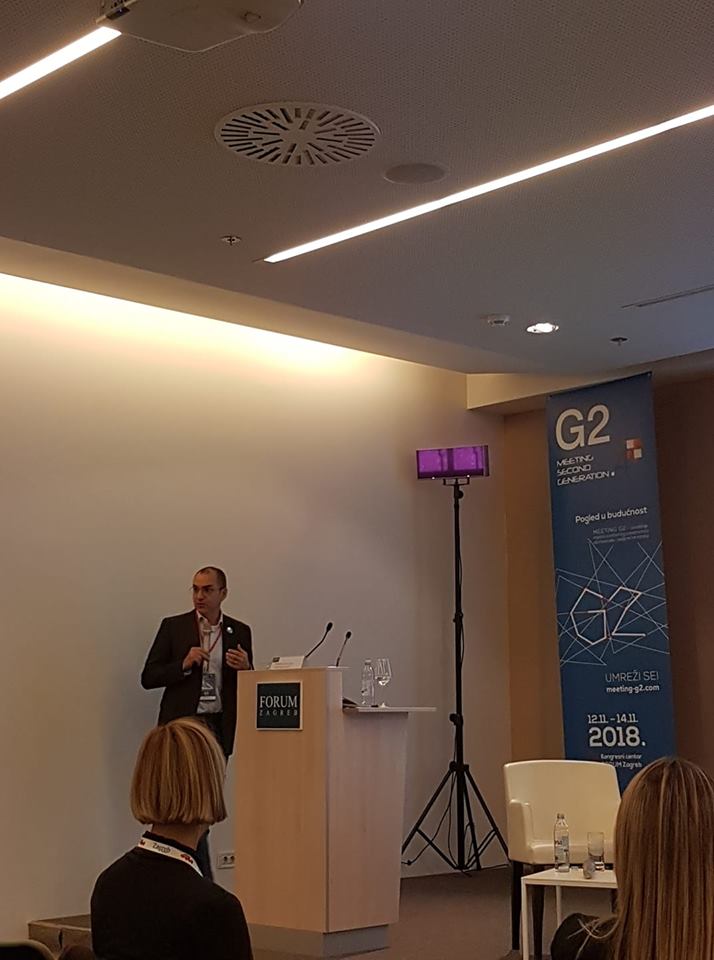
I know Nenad reasonably well, and he was kind enough to invite me to the EY Entrepreneur of the Year award earlier this year, where I got a glimpse of a very vibrant and unified entrepreneurial Croatia, which really gave me hope for the future.
I had never heard Nenad give a presentation before, and so I was curious to see how he did. It turned out he did rather well indeed, easily the most engaging presentation of the entire conference, at least in the opinion of this foreign fly on the wall.
He also laid out quite brutally the realities of life in The Beautiful Croatia - how people perceive aspects of life here, using a survey by the European Commission on public opinion about their countries. The survey was published in December 2017, and Nenad wrote about it on his blog earlier this year. I was not the only person who sat shocked in the audience. The data he was presenting was not only shocking, but it also went a long way to explaining why so many people are leaving Croatia today.
The survey asked a number of questions about perceptions of life in the respondent's EU country, where they were asked to choose from four responses on how much they agreed with a particular questions - Essential, Total Imporant, Total Not Important and Don't Know. Croatia was at the bottom of almost everything, with the VERY important exceptions of two things - it tells an awful lot about the reality of the daily grind in Croatia (tourists, look away now - it is a GREAT place for a 2-week holiday).
How important is working hard to getting on in life. Croatia, bottom of the EU table of citizens thinking this as essential.
How important is education in getting on in life? Not very (Croatia is joint bottom with France).
How important are political connection to getting on in life? We have an Olympic champion - Croatia, 12 points!
How important is being lucky to getting on in life? The belief in luck is second only to Bulgaria in the EU.
So a country that does not believe in the need to work hard or have a good education, but where political connections and luck are all you need ranks rather differently than most of the rest of the EU, our lucky Bulgarian colleagues aside.
Although Nenad stopped there yesterday evening, I took a closer look at some of the other questions. People here think life is pretty unfair, more so than anywhere but Greece.
Equal opportuities? That is one we could laugh about over a raki or three with the Greeks.
And people certainly don't get what they deserve in life, if they life in Croatia.
Do political decisions apply to all? Not, apparently, in Croatia.
And a rather surprising finding, for me at least - Croats feel themselves to be the loneliest nation in the EU.
And don't feel particularly healthy.
With not a lot of happiness.
Nenad Bakic is not a man to dwell on misery and the failings of Croatia. In business and in his educational initiatives, he is working round the clock to bring positive change, and I applaud him for that. The only way to move Croatia forward is through education. Education. Education. Education.
And so, from such shocking findings, he moved his speech to the positive initiatives he and his wife Rujana are working on with their partners. Rather than do a detailed analysis of that work today, here is an English language summary of Croatian Makers and their objectives. You can visit the website here.
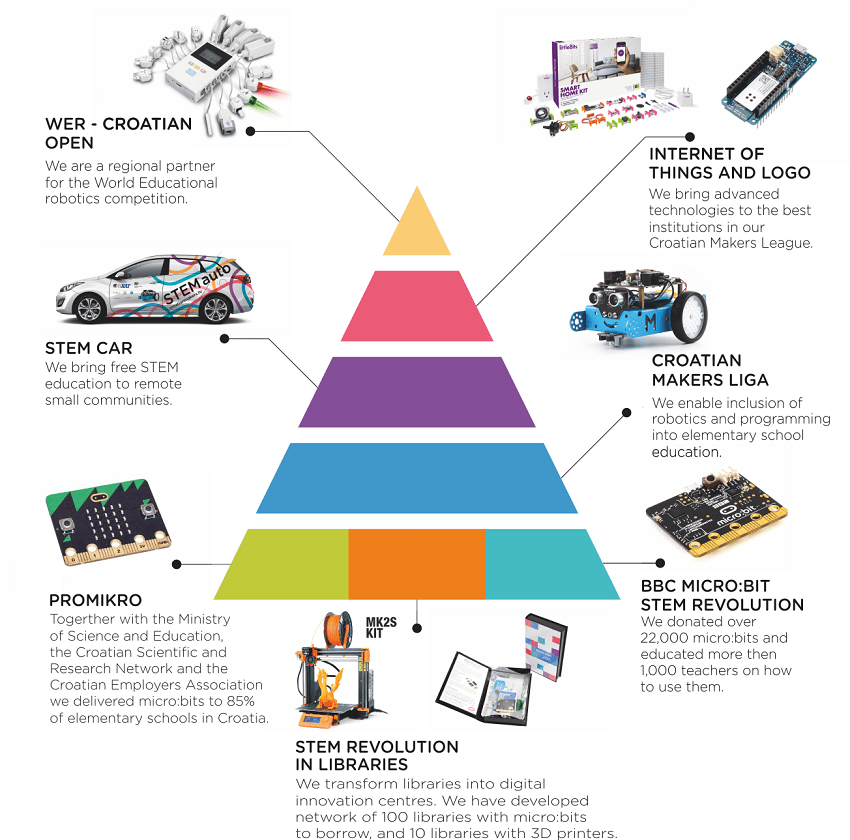
IRIM
IRIM (Institute for Youth development and Innovativeness) is a Croatia-based non-profit organization (private foundation), which has developed and implements the largest extracurricular STEM program in EU – the Croatian Makers movement, which now includes over 100,000 children. Although IRIM originates from, and primarily operates in, Croatia, it has recently transposed its activities to Serbia, BiH and Kosovo, where local partners deliver IRIM-designed major projects (with initial funding from IRIM), also with the aim of engaging in joint regional activities. Such cross-border co-operation is of utmost significance in the region which still suffers consequences stemming from the conflicts in the 1990s.
IRIM donates a large amount of equipment (also consisting the main cost of project operations), but only as foundations for wide and deep knowledge distribution using that equipment, through organized activities, teacher education (more than 3,000 teachers educated in Croatia only), content development etc.
The initial and still core financing comes from local philanthropists, family Bakić, but due to developing size and scope of its activities it has lately been attracting additional most of the financing from external sources, including citizens (through public crowdfunding campaigns and general donations), private companies, national and EU development funds. At the moment, IRIM employs 14.
IRIM’s mission
IRIM’s core mission is to empower all the children in Croatia and the region to develop STEM competencies necessary for them to be equal citizens of 21st century, by providing not only equipment, but also education and other activities.
The educational system in Croatia and the neighboring regional is undergoing reforms, but currently it cannot deliver well neither in STEM fields nor in developing key competences such as collaboration, communication and learning skills, creativity, curiosity, persistence and leaderships, and IRIM’s activities are not only naturally inductive for developing those competencies, but also on purpose geared toward them. A nice illustration is this excerpt from a prime-time feature on the national TV about Croatian Makers in Dvor, one of the least developed towns in Croatia:
(turn on subtitles in English).
Additionally, by a relevant research by Eurostat, the citizens of Croatia have the lowest in EU estimate of the importance of education and hard work as key elements for success, and the highest estimate of political connections and luck. It is similar in Western Balkans countries where IRIM’s designed activities are deployed by local partners. Hence, IRIM’s main social mission is creating a culture of success, aiming at strengthening meritocracy as the central pillar and main driver in society.
The central player in educational ecosystem, with strong capacity for co-operation
IRIM strong capacity for partnership and a wide national/public support adds significantly to its success. For example, a project called STEM Revolution was primarily financed by the largest-ever crowdfunding campaign in Croatia, topping over 300,000 USD donated by more than 2,500 individuals and organizations. More than 25,000 coding devices were delivered to more than 1,000 educational institutions including schools, universities, NGOs, orphanages etc., together with extensive teach-the-teacher workshops and developing content.
Following STEM Revolution’s unique success, IRIM partnered with the Ministry of Science and Education to introduce coding to Croatian schools, delivering coding devices micro:bit to all the Grade 6 pupils, developing cross-subject content, and educating over 2,000 teachers. Other significant partners include Croatian Employers Association, Rotary clubs, and a number of corporations like Croatian Telecom, Croatian Post, Tele2, INA – Croatian national oil company, etc., and IRIM has successfully applied to a number of national and EU grants.
IRIM’s unique approach is combining grassroots (movement) with institutionalization. Its strength stems from the base, teachers and children voluntarily joining the movement, but it always strives to institutionalize, getting educational and other institutions on board, thus avoiding friction and using institutional leverage.
Croatian Makers movement by its size and intensity has a great impact not only on schools and other educational institutions and the school system, but the society as a whole. IRIM’s focus in on equality of opportunities and for this purpose IRIM has developed a family of platforms, ranging from most democratic to more complex project like robotics league, advanced robotics competition and other advanced projects. A good example of complex projects is a massive IoT collaborative project which includes 100 schools, engaging in simultaneous measurements of 7 ecological variables and presenting them at a public website in real time. The ability to recruit such a large number of partners for such an advanced project demonstrates the size and depth of the movement and its capacity to devise and manage complex projects.
IRIM’s projects / family of platforms
- STEM revolution / ProMIkro - The most democratic IRIM’s project was introducing coding to Croatian educational system and communities at an unprecedented level using a physical-computing controller micro:bit. Previously, there was no coding in Croatian schools, apart from patchy optional subject.
This project has been implemented in two steps. The first was ‘STEM revolution’, primarily funded by the most successful crowdfunding campaign ever in Croatia. It brought 25,000 coding devices to more than 1,000 institutions in Croatia (elementary and secondary school, universities, libraries, orphanages …) together with developing curriculum and teaching the teachers. For the second, ProMIkro, IRIM teamed up with the Ministry of Science and Education which funded 45,000 micro:bits for all the Grade 6 children in Croatian schools, thus effectively introducing coding to elementary schools. The schools opted in voluntarily, and 85% of them opted to join the project. Thus coding was thus effectively introduced to Croatian elementary schools.
Teaching the teachers was the key element of the projects. Following a large-scale education effort in STEM Revolution, in ProMikro IRIM delivered more than 500 workshops in 3 waves for 2,000 teachers, out of whom the majority never, or rarely, coded before. The workshops were executed by a network of 30 technology ambassadors IRIM developed from its ecosystem, and workshops were financed by the Croatian Employers’ Association. IRIM developed extensive cross-subject curriculum comprising of more than 60 teaching lessons ready to be taught in class.
- Croatian Makers Robotics League is IRIM’s flagship project in robotics, the largest competition of such kind in EU with more than 11,000 children included in more than 550 schools and non-profits, whereas IRIM has donated more 2,750 robots. The educational institutions participate regularly, in 4-5 rounds during the schools year, and locally, so that the subject can be integrated into the curriculum, and not be (as is usual with robotics competition) one-off.
The successful concept of the Robotics League has since been successfully implemented in Serbia, BiH and Kosovo by local partners (with IRIM’s initial donations), and the one in Serbia now includes almost 500 schools, and has been mostly financed by Serbian government.
It important to emphasize that the Robotic League is using the same robotics platform (mBot by Makeblock) in all included countries, which ensures full compatibility and interoperability of activities at regional level.
- Advanced regional robotic competition WER using advanced robotics sets by Abilix, participants being all the best regional teams from abovementioned leagues is regional flagship competition in educational robotics. IRIM is in talks with another global leader in educational technology, Makeblock, to implement Makeblock regional / EU competition, and its ‘league’ concept to be implemented globally.
- STEM car, a ‘modern era-moving library’, bringing free coding and robotics classes to less developed communities. STEM car is a continues project (in 2018. there will be 6 cross-country tours lasting 2-4 weeks) and has already visited hundreds of villages and towns, with hundreds of workshops for thousands of kids, introducing them to the world of technology and inducing them into other IRIM’s activities.
- Izradi! IRIM uses several channels of knowledge distribution, among which is a premier one is its content platform Izradi! (=Make!).
- STEM Revolution continues - Libraries - Especially worth noticing, whereas IRIM aims to empower public libraries to become centers for developing digital competencies in local communities. It is equivalent to e.g. Singapore’s national Digital Maker program aiming to transform the nation introducing technology to schools and families (using primarily micro:bit, as IRIM does). Within the project, IRIM donated
- coding devices micro:bits for free workshops and to borrow to 100 public libraries in Croatia
- donating 3D printers to 10 and to the National and University Library.
Thus, libraries are transformed into public learning spaces for new technologies, but also as digital innovation centers.
- Advanced IoT in Croatian schools Technologically most advanced project by now for the whole Croatian Makers ecosystem has been, financed primarily by Croatian Telecom, which has been the largest outside donor, IRIM winning 2 of its major grants.
Using advanced Arduino technology, 100 educational institutions – schools, NGOs, orphanages – simultaneously measured and publicly displayed 7 ecological variables, including micro-particles. That final demonstration was preceded by two calls for creative projects in using IoT related to smart homes and pets and domestic animals.
Stem Revolution for Croatian Schools: Programming with Micro:Bits
The stem revolution for Croatian schools has begun for children in grades 1-4!
Zagreb, November 6, 2018 - Elementary schools across the whole of Croatia as can apply for participation in the new STEM Revolution – Grades 1- 4 project. Those participating will have the opportunity to teach their youngest pupils digital literacy competencies and learn programming using micro:bits.
The project was presented by Nenad Bakic, the President of the Institute for Youth Development and Innovation (IRIM). During the last year, project STEM revolution introduced programming into the wider education system, with a donation of 25,000 micro:bit microcomputers into 1000 institutions.
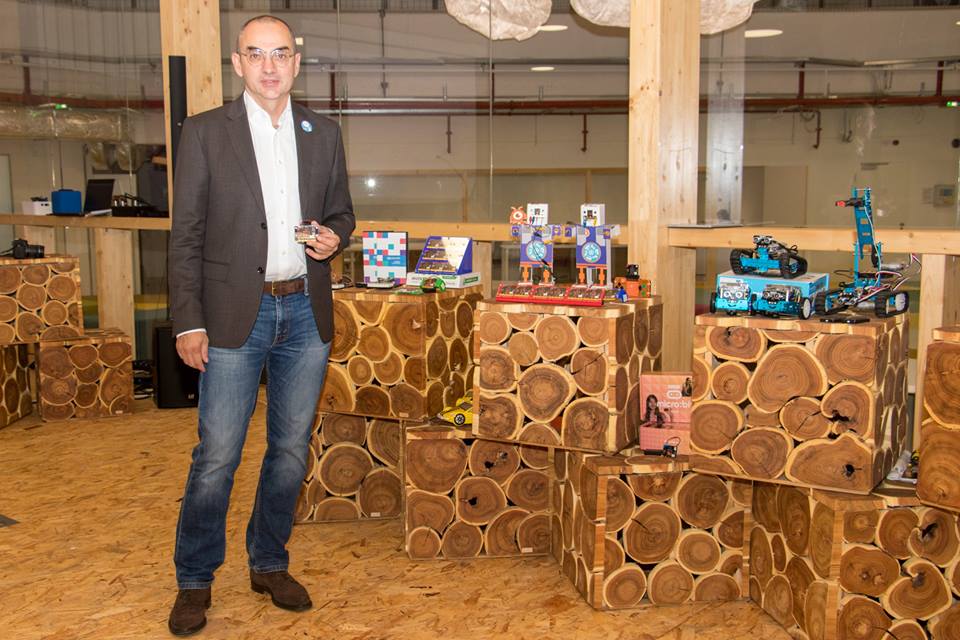
In cooperation with the Ministry of Science and Education, the Croatian Employers Association, CARNet and other partners through the ProMikro project IRIM, programming in the 6th grade with over 35,000 donated micro:bits was introducted, was well as content development and education of over 2000 teachers.
''There is a strong interest in Croatian educational system for the introduction of STEM competencies, especially in relation to technology. This can be seen in advanced activities, for example, through the ever-growing interest in the Croatian Makers Robotics League, which now includes over 550 educational institutions, but equally at the widest level of digital competence development, i.e. programming and the development of digital literacy, through STEM Revolution projects and ProMikro. As a follow up to these projects, research conducted among school principals and teachers shows a great interest in expanding these activities,'' Nenad Bakic said at the presentation of the project which will be implemented in cooperation with Rotary Club Zagreb Center and Rotary District 1913 – Croatia.

There are currently approximately 2000 schools in Croatia which have pupils in grades 1 - 4, and all will be invited to voluntarily participate in the project. Expectations are that approximately half of the schools will apply, taking into account the interest of the school and the teachers, as well as the availability of other equipment such as computers, tablets, or smartphones, which are used to program micro:bits.
Programming will be introduced for a particular subject and also across the spectrum of school subjects. Micro:bit is a teaching tool for delivering existing content in a digitally creative way so there is no need to change the curriculum.
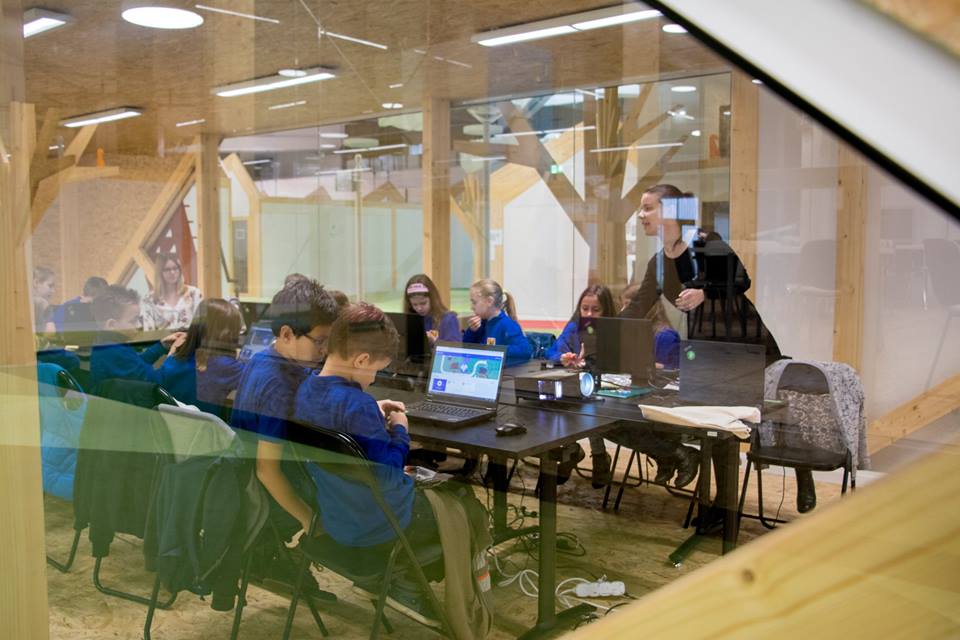
After the national STEM project, the micro:bit has established itself as a globally unique and leading computing platform, with national projects, for example in Denmark (for all 5th grade students, to introduce programming), Singapore and Canada.
As lower grade students rarely have a designated time to use computer labs, micro:bits will be placed in school libraries. In this way, teaching can take place in the library and in the classrooms. The library will allocate additional micro:bits for students to borrow for work at home, Bakic announced.
The project cost is estimated at 5 to 6 million kuna, and initial funding will be provided by IRIM and the Rotary Club Zagreb Center, each with 100,000 kuna, which will secure the purchase of the first micro:bits.

The project will be implemented for a period of 12 or 24 months, depending on the availability of funds and interest of the schools. It is possible to finance it in phases, so schools will receive micro:bits in waves, in the order that have signed up.
IRIM will also fund the development of content for lessons from various subjects, using micro-bits, just as it did for the 6th and 5th grade. Content will be permanently available and upgraded using various channels. IRIM will also educate 1000 - 3000 teachers, just like it previously trained two thousand teachers for the ProMikro project.
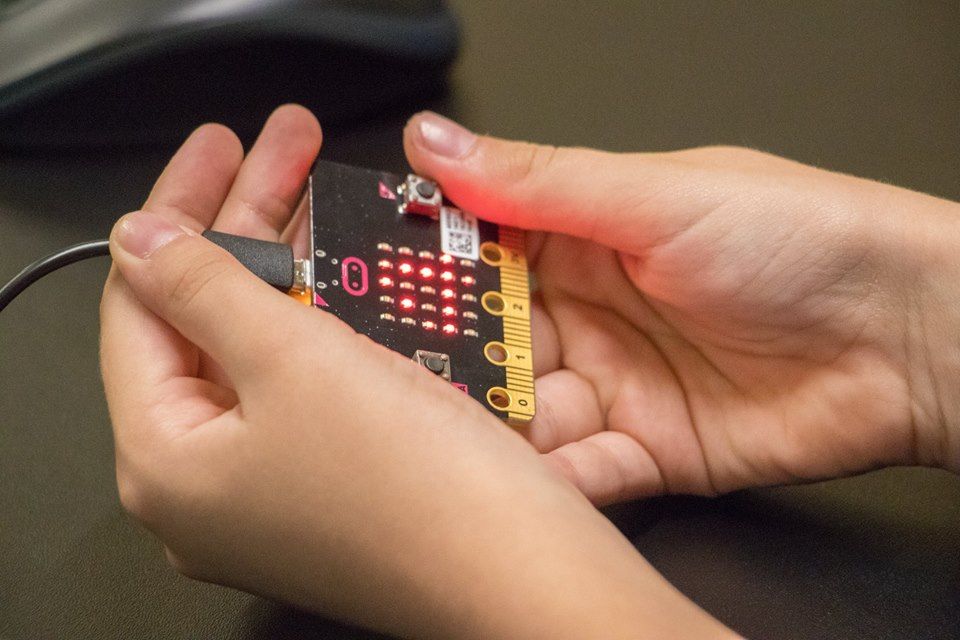
IRIM also provides web site production, collection of applications and communication with schools. Partner organisations joining are: the Croatian Post Office, which will donate the delivery of micro:bits throughout the country, the Bruketa & Žinić & Gray creative agency will supply its services in the project presentation, and the PR agency Communication Laboratory will give support for public relations. BBC micro:bit is an educational and creative tool whose purpose is to inspire a new generation of young people.
It can be used in a variety of ways throughout the curriculum, not just in STEM subjects (science, technology, engineering and mathematics). It can help young people acquire knowledge and skills to develop from digital technology consumers into designers and creators of new tools that will help them improve their learning, solve problems or simply entertain them and allow them to take full advantage of the benefits of life and economy in the 21st century.

Micro:bit is characterised by extremely low prices, low barriers for beginner and advanced use, and a highly rich ecosystem. Click here and here for examples.
The founders of the Micro Foundation are: the BBC, Microsoft, Amazon, Samsung, ARM, the British Council and others.
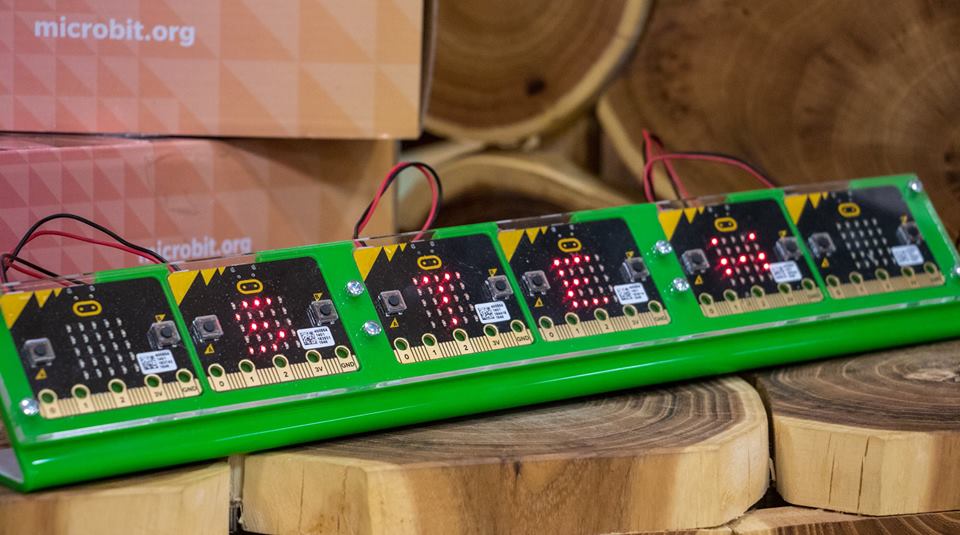
IRIM runs the Croatian Makers program, which includes a number of projects such as: the Croatian Makers Robotics League, STEM Revolution, ProMikro, Internet of Things, STEM Revolution continues - Libraries, STEM Car. Croatian Makers, with over 100,000 children, and over 3,000 educated teachers, is the largest program of its kind in the EU.
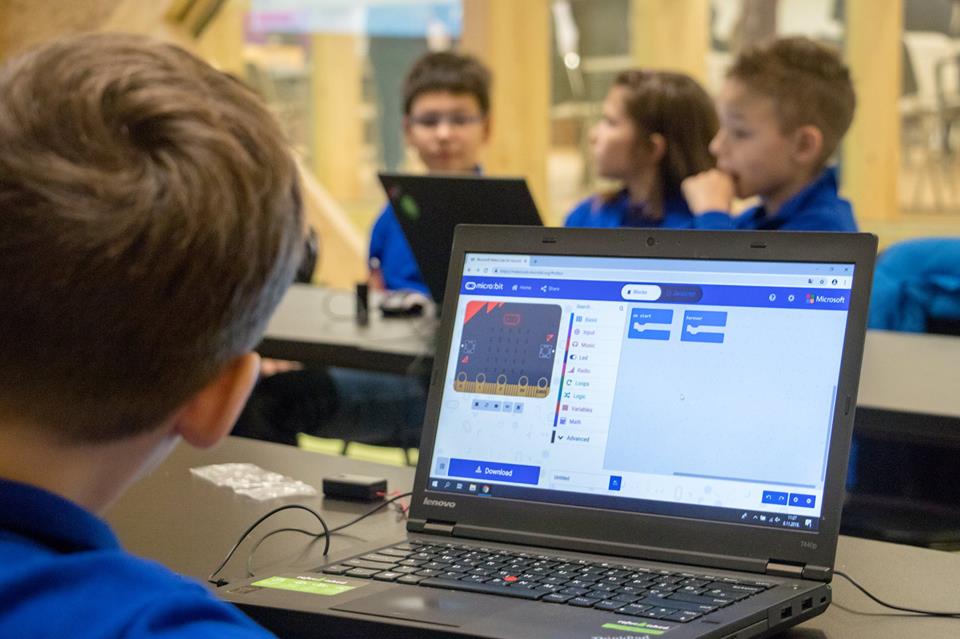
The founders of IRIM are Nenad and Rujana Bakic. You can find more information on Croatian Makers here. Participating schools can apply here.
Want to keep up with more information on the stem revolution in Croatian schools and more information like this? Make sure to follow our Made in Croatia page!
Croatian Makers STEM Car Goes on Tour to Offer Free Summer Workshops in Robotics
STEM Car will be travelling through Slavonia for two weeks, offering free robotics and programming workshops.


